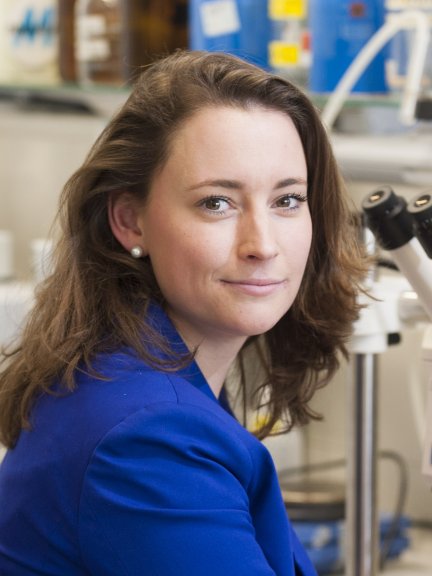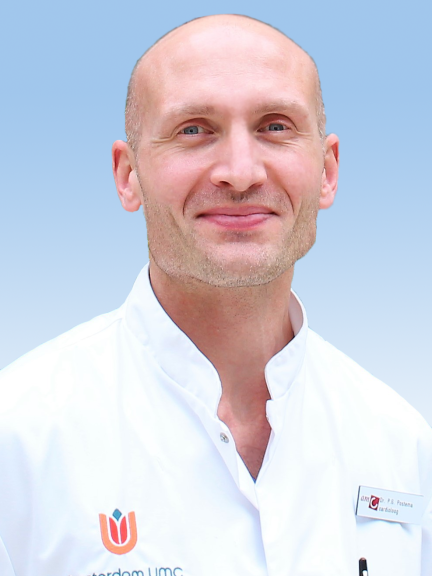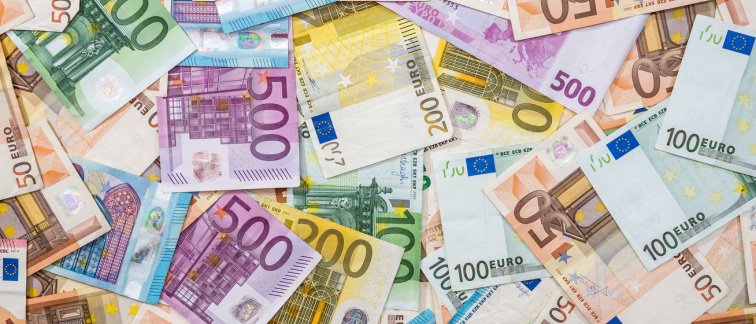This year, the Dutch Heart Foundation received 78 applications. Ten researchers were awarded the prestigious grant. Three of them are affiliated with the ACS research institute of Amsterdam UMC: Inge Mulder, Jeffrey Kroon and Pieter Postema. With the grants, the Heart Foundation enables researchers to make the next step in their careers. The Dekker grant helps them to set up and expand their own line of research.


Improve acute ischemic stroke treatment
For several years now, specialists have been able to remove the clot from a brain vessel with a catheter after a brain infarction. However, blood flow to the brain often does not completely recover after such an intervention. The blood flow in the smaller arteries is often insufficient, probably because these vessels narrow. With the awarded Postdoc Dekker grant, Inge Mulder (dept. of Biomedical Engineering and Physics) will investigate dysfunction in the smaller arteries during occlusion and after the clot has been removed. She will also investigate whether a drug can prevent the small vessels from contracting.
Inhibiting inflammation to combat arteriosclerosis
When you think of arteriosclerosis, you might think mainly of fats, such as cholesterol. But inflammation in the vessel wall also plays an important role in the development of narrowing of our blood vessels. Jeffrey Kroon (dept. Experimental Vascular Medicine) will use the Senior Scientist Dekker grant to study this inflammation. He wants to lay the foundation for new medications against heart and brain infarcts, which can be the result of arteriosclerosis. He will do this by specifically looking at the metabolic processes in the endothelium. This research is also important for other diseases in which inflammation in the blood vessels plays a role, such as infection by COVID-19.
Treating dangerous cardiac arrhythmias with radiation
Many people will be familiar with radiation therapy primarily from cancer treatments. But cardiologist Pieter Postema also expects a beneficial effect in certain heart patients. These are people with a high risk of a dangerous cardiac arrhythmia (ventricular tachycardia), which leads to cardiac arrest. The patients Postema focuses on are living with an internal defibrillator (ICD), but they suffer repeated cardiac arrests. This has an enormous impact on their lives. Postema received the Senior Clinical Scientist Dekker grant to investigate how exactly radiation therapy works for these heart patients. He also wants to know how the radiation can be used safely, without damaging the rest of the heart too much.
About the Dekker grants
The Dekker grants are being awarded for the 35th time this year. They are named after Dr. E. Dekker, former director of the Dutch Heart Foundation. He was the initiator in the Netherlands of civilian assistance in the event of a cardiac arrest. Dekker grants are personalized grants for talented cardiovascular researchers at various stages of their careers.
Faster solutions for patients
Scientific research is desperately needed to prevent people from dying or becoming ill from cardiovascular disease. That's why the Heart Foundation attracts top talent with its personalized Dekker grants and helps them build their own line of research. Many of the studies address topics that have been chosen as key priorities by patients, doctors and scientists. These include, for example, better treatment and lasting cures for cardiac arrhythmias and heart failure. Thanks to the Dekker grants, the search for solutions goes faster, now and in the future.

